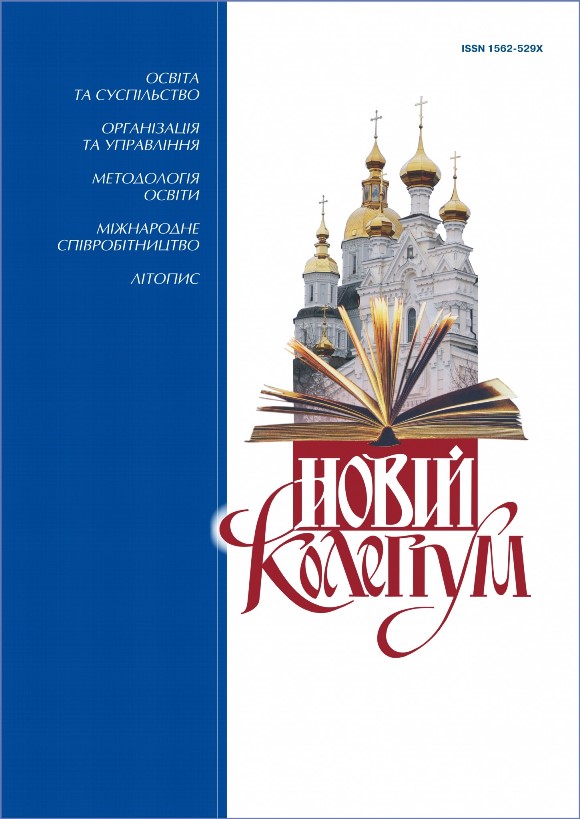Distance learning using software in local budget management
DOI:
https://doi.org/10.30837/nc.2023.3.43Keywords:
student, distance learning, software products, professional training, LOGICA systemAbstract
The development of information technologies and full-scale military actions on the territory of Ukraine led to a more active use of methods and forms of distance learning during the training of applicants by domestic institutions of higher education. The use of modern distance learning technologies allows to qualitatively improve the educational process, opens up new opportunities for training competitive specialists who will meet the modern demands of employers.
The article is devoted to the issue of improving the quality of distance learning on the example of the use of software in the management of local budgets in the educational process to strengthen professional practical skills of higher education students.
The article reveals the experience and specifics of using distance learning elements at the State Tax University. In particular, the use of software in the management of local budgets during the study by students of higher education of the second (master's) level of training in the specialty 072 «Finance, banking and insurance» of the academic discipline «Financial resources of local self-government» is considered in detail. The study of the specified discipline will serve to form the skills of a confident user of the IPC «Local Budget» in students of higher education.
The content of each of the six modules of the University's student training program with the use of software in the management of local budgets is disclosed. A list of knowledge and skills acquired by students as a result of studying each module of the program has been formulated. The advantages of using the software in managing local budgets based on the IPC «Local Budget» and the IAS «LOGICA» for higher education applicants are substantiated. The existing disadvantages of distance learning for higher education applicants are outlined.
References
Закон України «Про вищу освіту» від 01.07.2014 № 1556-VІІ // Відомості Верховної Ради (ВВР). 2014. № 37–38. URL: https://zakon.rada.gov.ua / laws/show/1556-18
Лист Міністерства освіти і науки №1/9-154 від 11 березня 2020 року. URL: https://mon.gov.ua/storage/app/media/news/%D0%9D%D0%BE%D0%B2%D0%B8%D0%BD%D0%B8/2020/03/11/1_9-154.pdf.
Мала І. Б. Дистанційне навчання як дієвий інструмент управлінської освіти // Вчені записки Університету «КРОК». 2022. № 2(66). С 132 – 151. URL: https://snku.krok.edu.ua/index.php/vcheni-zapiski-universitetu-krok/article/view/513
Лемешко О., Єременко О., Євдокименко М., Кузьміних Є. Особливості створення віртуальної лабораторії кібербезпеки для дистанційного навчання // Новий колегіум. 2020. №3. С. 41 – 45. Режим доступу: https://nure.ua/wp-content/uploads/2020/Scientific_editions/nk_2020_3.pdf
Гордей О., Рябокінь М., Новицька О., Котух Є., Блюма О. Практика подання бюджетних запитів в інформаційно-програмному комплексі «Місцевий бюджет» // Економічний аналіз. (2022). № 4. Т. 32. С. 103 – 114. DOI: https://doi.org/10.35774/econa2022.04.103 URL: https://www.econa.org.ua/index.php/econa/article/view/2932.

